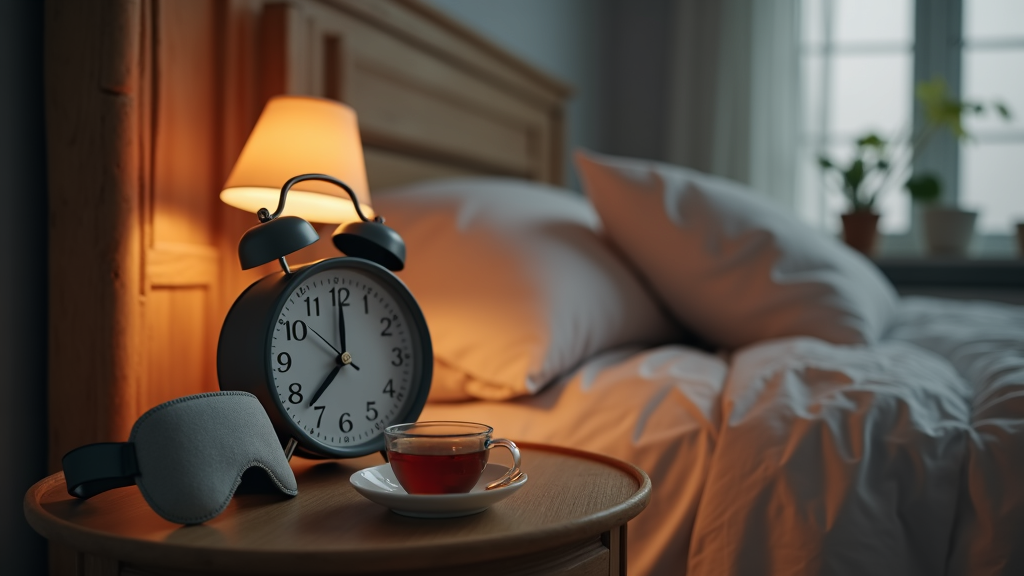Working night shifts or constantly rotating hours messes with your sleep much more than just making you tired. I’ve spent plenty of nights trying to figure out why my mind feels so wired at 2 a.m. and so foggy come noon. That’s actually pretty common among shift workers, and sorting out sleep is one of the real challenges of this lifestyle. Good sleep isn’t automatic for anyone, but for those who work nights or flip between day and night, it’s even trickier. Here’s how mindfulness and a few helpful sleep aids can make a difference when it feels like your body is on a totally different schedule from the rest of the world.

Why Shift Work Messes with Sleep
So much of how we sleep depends on our body’s natural clock, also known as the circadian rhythm. This is what signals us to feel awake during the day and sleepy at night. Working shifts, especially rotating or overnight shifts, really throws this rhythm off, which is the main reason why falling asleep and staying asleep can be so tough.
People with irregular work hours might get used to it a little bit over time, but the body’s clock never truly adjusts completely. That means trouble drifting off, waking up feeling groggy, and sometimes just not getting anywhere near a solid eight hours. Long term, this can affect much more than mood—you might notice changes in your immune system, heart health, or even how you get along with those around you, since sleep really impacts how you connect with others.
How Mindfulness Fits Into Better Sleep
Mindfulness is all about being aware of your thoughts and feelings in the moment, without judging them. For shift workers who are trying to fall asleep when the world’s just starting to wake up, that awareness can change your whole sleep equation.
I’ve found that practicing mindfulness at bedtime helps keep the usual cycle of anxious thoughts or “I have to fall asleep NOW” worries from taking over. It doesn’t make every night perfect, but it definitely creates the mental space to relax enough so sleep feels less forced.
- Body Scan Meditation: This is a very useful technique where you focus attention on different parts of your body, noticing how each one feels without trying to change anything.
- Breath Awareness: Paying close attention to your breathing can help ease your mind and body, sending the signal that it’s time to wind down.
- Guided Imagery: Listening to a soothing audio guide that helps you picture a peaceful place can help if your mind won’t slow down on its own.
Practical Steps for a Mindfulness Routine
Building a mini mindfulness routine doesn’t take a lot of time or fancy equipment. I keep things easy so I don’t feel like it’s just another thing on my to-do list before bed:
- Set a Wind-Down Window: Give yourself at least 30 minutes to power down before you actually want to fall asleep. This is especially important right after your shift, when you’re still a little wound up.
- Turn Off the Bright Lights: Artificial light can trick your brain into thinking it’s daytime, so dimming things helps set the sleepy mood.
- Focus on One Sense: Just listen to the sounds around you or focus on how your pillow feels under your head. This pulls your mind away from racing thoughts.
- Use a Mindfulness App: There are free or cheap apps (like Calm or Insight Timer) with special sessions for sleep. I use these when my normal routine isn’t enough to calm me down.
It helps to remember that mindfulness isn’t about never having racing thoughts, but about bringing yourself back to the present when your mind starts to wander. Over time, this routine can make falling asleep feel a little more natural, no matter what time it is.
Sleep Aids That Actually Help Shift Workers
Mindfulness is powerful, but sometimes it needs a bit of backup. There’s a ton of advice online about sleep aids, but a few really make a difference for people working odd hours.
- Blackout Curtains: These curtains keep daylight out during the day, making your bedroom feel much more like nighttime. I swear by them. Sunlight streaming in at 7 a.m. after a night shift is just brutal.
- White Noise Machines: Daytime traffic and noisy neighbors can ruin sleep, but a gentle background noise (like rain or a fan) helps block out those distractions.
- Sleep Masks and Earplugs: Classic, but still very effective for blocking light and sound when you need peace and quiet.
- Melatonin Supplements: Some shift workers put melatonin to work to help adjust sleep timing. But talk to your healthcare provider before adding supplements, to avoid any interactions with health conditions or other meds.
- Cooling Mattress-toppers: Keeping cool is a bigger deal than most people expect. Sleeping too warm or on a mattress that traps heat makes it harder to fall asleep and stay asleep.
Link for blackout curtains:
Link for Melatonin Supplements:
Link for cooling mattress-toppers:
Extra Sleep Strategies for Shift Workers
Sometimes it’s not just your shift but your habits outside work that make or break your sleep. Consider these extra strategies:
- Create a Pre-Sleep Ritual: This could be as simple as having a cup of herbal tea, taking a warm shower, or reading a few pages of a book. Signals like these prep your brain for rest.
- Limit Big Meals and Alcohol Before Bed: Eating heavy or drinking alcohol right before sleep can cause restless nights and lighter sleep overall. Try to stop meals and drinks at least a couple of hours before you plan to sleep.
- Stay Active, But Not Right Before Bed: Physical activity during your waking hours helps you fall asleep faster, but exercise too close to bedtime can actually make it harder to wind down.
Things to Think About Before Trying Sleep Aids and Mindfulness
No single answer fits everyone, but some general points are good to keep in mind before starting with sleep aids or adding mindfulness to your routine:
- Check for Side Effects: Even simple gadgets or over-the-counter supplements can occasionally interact with existing conditions or other meds. For melatonin, always get the thumbs up from a doctor before starting.
- Consistency Beats Intensity: Doing a short meditation most nights adds up to more restful sleep over time than doing occasional marathons. With sleep, small and regular wins count most.
- Light Exposure Timing: The time of day you are exposed to bright light matters. Some shift workers use light boxes to get in sync, but getting advice from a sleep specialist can help you avoid making things worse accidentally.
- Be Careful with Sleep Medications: Sleeping pills might help in the short-term, but relying on them can make sleep even worse down the line. More behavioral approaches, like mindfulness, are a better move for lasting change.
“Here’s a little transparency: Our website contains affiliate links. This means if you click and make a purchase, we may receive a small commission. Don’t worry, there’s no extra cost to you. It’s a simple way you can support our mission to bring you quality content.”
Melatonin and Caffeine: The Good, the Bad, and the Timing
Melatonin is the supplement everyone talks about for better night-shift sleep. Taking a small dose about half an hour before bedtime can help reset your timing if you’re stuck in a mismatched rhythm. Most people do best with the minimum dose, so don’t automatically assume more is better.
Caffeine can feel like your only friend during a long shift, but it’s key to cut if off at least six hours before you want to sleep. It can stick around and mess with your rest, even when you think you’re tired enough to sleep through anything.
Environment Tweaks That Really Matter
The right sleep setup makes a bigger difference than people guess. Optimizing your bedroom for cool, dark, and quiet conditions should be your first move—way before thinking about buying fancy pillows or expensive gadgets. Here’s what I and other shift workers rely on:
- Go for blackout curtains or shades to block out the daytime sun. Darkness tricks your brain into sleep mode.
- Stick with a consistent sleep and wake time, even if you could change it up. This keeps your body clock more balanced and makes it easier to fall asleep consistently.
- Leave the electronics out of the bedroom or use blue light filters if you must check your phone or tablet. Screens keep your brain wired and push back your body’s natural sleep signal, so trade them for a book or calming music.
Common Questions from Shift Workers About Mindfulness and Sleep
People ask me all the time about quick fixes, so here are the big questions and what works for most:
What’s the best thing to try first if I can’t sleep after a night shift?
Try this: Do a quick body scan meditation and add blackout curtains to your space. These together calm both your mind and your surroundings, making sleep much more likely, even when it doesn’t feel natural.
Should I skip naps if I’m working shifts?
Answer: Not always! A quick nap for 20–30 minutes before your shift can actually give a boost for alertness. Just don’t go longer, or you might struggle to fall asleep during your main rest period.
How long does it take mindfulness to help with sleep?
Answer: Most people notice at least some difference in one to two weeks. The more regular you are, the better your results will be.
Are smartwatches or sleep trackers worth it?
Answer: They can help you spot patterns you didn’t realize or track progress with your routines, but don’t get obsessed with the numbers. It’s about quality and sticking with your best sleep plan.
Final Thoughts on Better Rest for Shift Workers
Improving your sleep as a shift worker is an ongoing experiment, but adding mindfulness and making some changes in your sleep environment can make a real difference. There’s not a single magic trick, but small actions like dimming the lights, practicing a few mindful breaths, and using blackout curtains genuinely add up over time. I’ve shifted from staring at the ceiling for hours to actually getting restful sleep—even if my “morning” starts when most people are heading home from work. If you’re feeling stuck in a rut with sleep, patience and a game plan will pay off. The aim is to give yourself better rest, one shift at a time.
